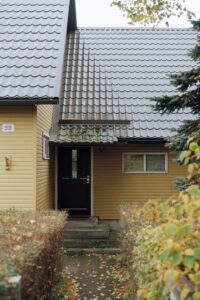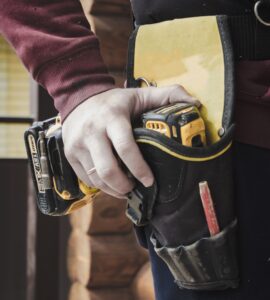Questions buyers should ask about the roof before making an offer
Are you looking for a place to call your own? This is most certainly one of your largest expenditures, and maintaining it requires upkeep, maintenance, and a significant amount of preliminary research. Roofing materials are not indestructible. The most significant restoration job that most homeowners must undertake is the replacement of their roof. Any roofing work might become a substantial out-of-pocket expenditure if you are not protected by a guarantee. Find out whether you’ll need to repair or replace the roofing system before making an offer. A full inspection should always be performed by a professional. However, it’s a good idea to ask the homeowner a few pointed questions and look for warning signs.
Ten things you need to know about a roof before buying a house in Minneapolis
How old is the roof or when was it last replaced?
The age of the entire roofing system is the first question to address. This will tell you how much longer it should last and whether or if there are any age-related problems. Roofing systems are built to last a “lifetime,” which may be anything from 15 to 50 years and is often only transferrable to one new owner. A 10-year-old roof that is still owned by the individual who acquired it is far less dangerous than a 20-year-old structure or even a 7-year-old structure with many owners.
What material is the roof?
This is more general knowledge that you should have about the roof. Various roofing materials have different lifespans, warranties, and performance levels. Although asphalt shingles are the most common, double-checking is usually a good idea. After you’ve figured out what weather it operates best in, how long it typically lasts, and what kind of maintenance it requires, you can go on to the next step.
Which Minneapolis roofing company did the roof installation?
Find out who was responsible for the roof’s installation in the first place. This is important information to have on hand for warranty purposes and as a general reference. If the manufacturer’s warranty on the installation is still valid, you’ll need to contact the roofers to get it transferred to you. Even if you don’t, you’ll need to know who to call in the event of a problem.
If the roof was installed by a reputable roofing company, you might wish to use the same roofers if you decide to purchase the property.
Were any roof repairs done by a roofing company?
Discover who has been working on the roof and conduct some background checks on them. That should tell you all you need to know.
- Is it possible that the homeowners used low-wage or under-the-table labor?
- Is that firm known for having a terrible reputation?
- Or do current homeowners value superior workmanship and invest accordingly?
- Was there a serious issue that required maintenance, or was it just routine maintenance?
When evaluating the rest of the house, keep these items in mind. An owner that is ready to scrimp on their roof is likely to scrimp on other areas as well.
Is the roof under warranty?
The roofing installation work, which is covered by the roofing company who installed the roof, and the roofing material, which is covered by the company that manufactured the materials used to construct the roof, are the two elements of a roofing guarantee.
Find out whether they’re both covered by warranty and if they’ll stay that way when the next owner buys them.
Reputable roofing companies provide warranties or guarantees on their services. This ensures that the job they’ve completed is of the highest possible standard.
Roofing materials come with a standard manufacturer’s warranty as well. However, this warranty is generally only valid under certain conditions. The following are some examples:
- regular inspections at specific intervals
- only being worked on by approved roofers
- using accessories and other roofing components by the same manufacturer.
It’s relatively simple to void a roofing warranty without even recognizing it. So, if you’re serious about a home, be sure the owner has crossed all of their T’s and dotted all of their I’s.
When was the last time the roof was inspected?
The homeowner should provide you with particular inspection dates and the inspector’s name.
Professional roof inspections should be performed twice a year, in the spring and fall. This is essential for spotting damage early on and ensuring that guarantees on roofs are honored.
Many people make the mistake of thinking that once a year is enough. As a consequence, an annual inspection by a homeowner isn’t always a red indicator.
There’s a chance that a hasty seller will engage someone to do a superficial check on the property.
As a result, you might wish to ask about the last two or three inspections. This will provide you with information on the regular inspection schedule as well as any past difficulties.
And always ask to see the inspection reports! If they have a few for you to look over, even better.
Are there attic issues that could affect the roof?
Inquire about the space in the attic. Roofing issues will ultimately present themselves in the attic, and early signs of deterioration are often obvious.
- One thing to watch out for is pest penetration.
- Warm spots and cool walls that are letting in drafts
- ceiling that is sagging or collapsing insulation that has been damaged
A trained home inspector will know exactly what to look for while inspecting a property. Asking some questions is always a good idea, and you may keep an eye out for these things yourself.
Have there been any leaks from the roof or signs of water damage, like water spots on ceiling?
Leaks are never good news, and there’s no guarantee that the problem has been remedied completely. If the roof requires repair, go the additional mile to ensure that it is completed appropriately.
Look for any signs of water damage that haven’t been fixed.
- Mold
- Mildew
- Ceilings with discoloration
- Ceilings that are drooping or sagging
Roofs do not always leak hundreds of gallons of water. At times, just a slow trickle seeps through the walls, ceiling, and hidden structure.
Water damage to the foundation or basement can be caused by faulty gutters and roofing components. This might suggest that the roof is in need of repair.
Are there roofing ventilation or attic ventilation issues?
Poor ventilation causes mildew, mold, and loose shingles, among other things. Moisture should never be permitted to build up within a building. But that’s exactly what will happen if the house isn’t sufficiently ventilated.
Roofs might appear to be in fine shape when they really need to be repaired. Especially if there is water accumulating beneath or between the tiles.
Inspect the ventilation in the main and kitchen sections of the house. Look for signs that the kitchen ventilation system hasn’t been utilized in a long time as well. Damaged kitchen cabinetry or peeling and flaking paint are examples of this.
Are there cold spots or structural misalignment that could indicate the roof was not installed properly?
Roofing issues are a common cause of drafts and cold spots throughout the house. It might be caused directly by the roof or indirectly by the effects of roofing damage on the rest of the building.
Winter storms and strong winds may wreak havoc on rooftops, causing windows and doors to become misaligned.
Any sticky windows, wall fractures, or unexplained chilly patches might be due to the roof.
Have a local roofing company do a roof inspection during your home inspection
If you’re seeking to purchase a home, the structural integrity of the roof should be your top consideration. This is an important part of the home’s construction, and if it’s neglected, it may lead to considerable out-of-pocket expenses.
Request an inspection from one of our roofing specialists if you want a third-party assessment on a possible house purchase.





